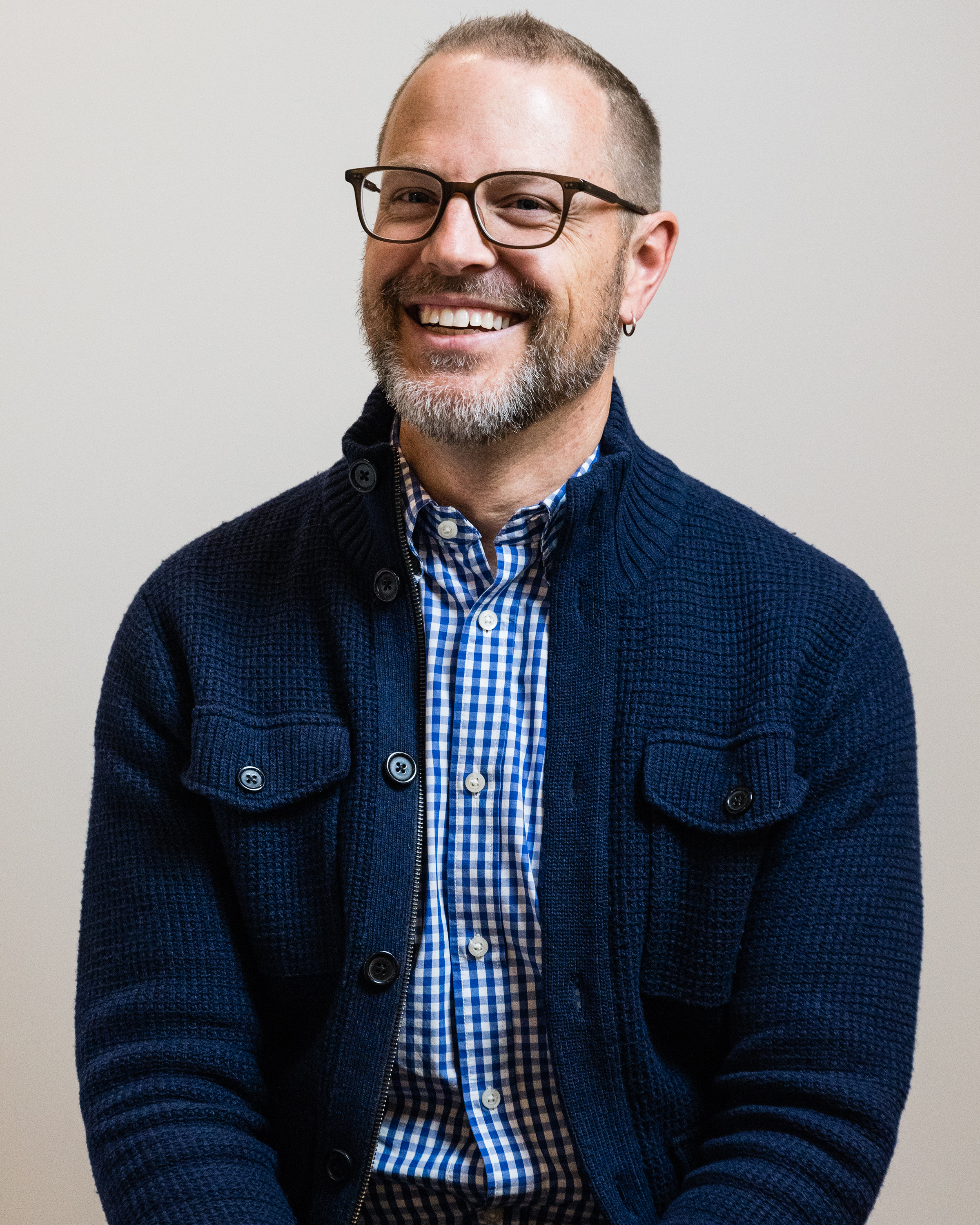As colder weather arrives, with assignments piling up and finals only weeks away, it’s a time of year when many students start to experience increased mental health concerns. The University of Alberta offers many services, supports and resources that can help students support and address their mental health needs, but knowing where to go can feel overwhelming with so many options. To get a clearer understanding of what is available and where to go, I interviewed Kevin Friese, Assistant Dean of Students, Health & Wellness, from the Office of the Dean of Students.

Kevin Friese, Assistant Dean, Health & Wellness
Do you have any general advice about mental health and wellbeing?
Often we frame mental health as something that’s an individual responsibility, which isn’t fair or realistic. If your mental health is flagging, you aren’t to blame - societal and community factors play a big part.
Many times things in life can cause us to feel mentally unwell - ending a relationship, financial concerns, academic challenges or food insecurity. Help addressing these can go a long way.
Remember that preventative measures count for a lot. Taking care of ourselves and each other can help keep someone on the right track, possibly preventing the need for interventions and clinical care.
What supports and services am I eligible for as a current U of A student? How can I access these?
This link is my go to for students in terms of taking care of themselves, whether it's those traditional mental health and wellbeing related resources, academic success, or other areas.
If someone just needs to touch base, they've maybe been having some relationship struggles, or are frustrated or experiencing challenges in their academics, I’d recommend a few options. There’s SU Service - Peer Support, where peers are trained and have experience in being able to provide some supportive listening. There’s also the Unitea program, which lets someone book a coffee or tea time with a peer volunteer to get together for a sit down and a conversation in a relaxed atmosphere. There is professional help available when someone needs it, but reaching out or checking in on each other can often make a big difference.
I’d recommend Wellness Supports as a first point of contact when someone is not sure where to turn. The social work team there can offer one-on-one consultations and help connect someone with supports and services based on their individual needs. This is really helpful when life’s circumstances are causing us to be unwell.
Counselling and Clinical Services is our full service clinic with psychologists, mental health consultants and psychiatrists. They offer everything from individual counselling services to group therapy to educational workshops. Some of those are specific to anxiety and stress reduction, while others provide advice for managing your time. The nice thing about these workshops is they're one-off sessions so people can drop in, attend and not worry about completing a whole series.
The University Health Center is our full service medical clinic available to students and their immediate family. Oftentimes some students may feel more comfortable talking about their mental health and wellbeing with a family physician. The UHC medical clinic provides access to a range of clinicians including family physicians, mental health therapists and medical specialists.
The Sexual Assault Centre offers specialized support for survivors of sexual violence. The team specializes in supporting survivors, providing volunteer-run education workshops and offering specialized psychological care for students.
Finally there’s the Military and Veteran Friendly Campus initiative, which serves a small, but valued, population of our student body. If a military or veteran student is struggling, the MVFC provides contextualized services and can assist a student in navigating the complexities of campus mental health and social support services.
If someone is struggling with a course because of mental health issues, what are the options? Or if struggles in a course are contributing to a mental health issue, what can someone do?
The first place someone should go if they’re struggling in a course is to talk to the professor or instructor. Instructors schedule office hours and set time aside to meet with students. Letting them know that you’re struggling can often help tip the instructor off too; if one student is struggling, chances are others in the class are as well.
Your professor can assist you in exploring academic options and determining whether an exam deferral should be provided to allow you to focus on recuperating and getting well. If you are still struggling after that process and need some additional assistance, you can reach out to the Office of the Dean of Students. We work with instructors, faculties and students to come up with solutions that work for all of the parties involved.
The Academic Success Center can help if a student with a documented disability or injury needs support or accommodations, and they also offer a range of academic services such as writing supports, communication skills and exam planning. These are intended to help students build their skill set and their toolkit for maintaining their academic well being.
As I mentioned earlier, if you don’t know where to turn, Wellness Supports is a great place to start, they are experts at connecting students with services.
This is specific to graduate students, but the Grad School Confidential is a podcast that aims to reduce the stigma around academic and personal challenges faced by members of this group.
A friend is struggling with a mental health issue. Is there a way I could support them?
A good first step is being a supportive friend –listening in the moment, being there and not seeking to jump in and advise or judge their particular circumstances or situation. Normalize how someone is feeling because often they're not alone and many of us have been in a similar spot. It can make a big difference for people to feel heard and that their concerns are understood. Don’t worry about saying the wrong thing; listen with empathy.
Wellness Supports offers a range of workshops that can help students build their toolkit to support their peers and community. Again, it’s a good referral point for students. The team can connect them with somebody who's going to care about their well-being, and can explore next steps.
By listening to each other without judgment and regularly checking in with each other, we begin to foster a caring community, which goes a long way in making sure everyone feels valued, validated and supported.
What are some tactics that can be used during midterms, finals and other stressful times to manage stress levels and emotions?
If we think of our well-being as a train on the tracks, it's a lot easier. If you're starting to go off the rails it’s much easier to nudge that train back on the tracks with preventative measures instead of letting the train get to a point where more significant help is needed. I’ve got a few tips that can help:
- Sleep hygiene is a big one, making sure that we're getting enough sleep, avoiding cramming and all-nighters - you’ll be more focused and productive if you’re well-rested.
- Remember to take a break and clear your head. Allow yourself to decompress and refresh a little bit by finding activities that fill you with joy. For some people that's taking time to read a book or doing art; for others it's exercising or getting outdoors.
- Build your academic toolkit and coping strategies with workshops through the Academic Success Center, Wellness Supports and Counselling and Clinical Services, which address can strengthen your academics and enhance your personal and community coping skills.
- Check in regularly with your friends to see how they are doing and offer to listen. Supporting each other is really critical to reducing stress. This can take many forms - it can be literally checking in, or it can be making a meal together or doing a group activity.
Will managing physical health and wellness help mental health? Does the U of A offer any resources for this?
We know that there are clear links between our physical health and our mental health. Campus Community Recreation (CCR) is an excellent resource that students have access to as a part of their university fees. It offers a range of recreational facilities such as pools, ice rinks, a track, weight room, intramural sports, climbing walls, fitness classes, group recreation activities and more. Additionally, Counselling and Clinical Services offers yoga classes on campus during the week.
Around North Campus there’s the outdoor gym, which is available throughout the year, and an outdoor ping pong table that's located just outside of that Van Vliet Centre which students can use in the non-winter months.
If students want to move a bit while they work on assignments or study, CCR also offers treadmill desks in a number of campus locations.
Finally, I recommend checking in to see what's going on in the greater community around Edmonton. We live in a city that has some incredible festivals and resources. Being a winter city, these are available all year long.

